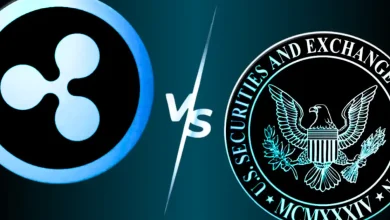
The IMF report highlights Bitcoin's growing importance, especially in countries with economic troubles or capital controls.
Bitcoin's decentralized nature allows it to bypass traditional banking systems, making it attractive in countries with strict financial regulations.
Bitcoin cross-border transactions differ from traditional flows.
A new report from the International Monetary Fund (IMF) points out how Bitcoin is becoming more important in finance, especially in places with economic problems or strict financial rules.
But is it a financial revolution or a risky gamble? Read on to explore the IMF’s findings and what the implications of it could be.
Here’s Why Bitcoin Matters
The report, titled “A Primer on Bitcoin Cross-Border Flows,” explains how Bitcoin helps people keep their money safe and make transactions across borders, especially during uncertain times in the global economy.
According to the IMF, many users in these regions turn to Bitcoin to move capital across borders more freely. The report mentioned that off-chain cross-border flows seem correlated with incentives to avoid capital flow restrictions, indicating that residents of countries like Argentina and Venezuela, which face hyperinflation and strict financial controls, are finding value in Bitcoin as a necessary financial tool.
Read More: Top Analyst See Bitcoin’s Daily RSI Breaks Out, Signals 15-20% Rally
Why Bitcoin?
Bitcoin’s decentralized nature lets it operate outside traditional banking systems, which makes it popular in countries with strict financial rules.
The report looks at both on-chain (recorded on the blockchain) and off-chain Bitcoin transactions to understand how Bitcoin is being used across borders. It finds that on-chain transactions, which offer more security, usually involve larger amounts of money compared to off-chain transactions.
This means that the robust security features of blockchain technology often protect more significant financial stakes than traditional financing transactions which are prone to mishap.
Navigating Risks
Additionally, unlike typical foreign investments that are sensitive to economic indicators like currency strength, Bitcoin flows demonstrate a higher correlation with cryptocurrency-specific sentiments, such as market volatility and user sentiment indexes like the Fear and Greed Index.
This points to a unique set of factors influencing the use of Bitcoin in cross-border transactions.
A Call for Cohesion
While the report acknowledges the benefits of Bitcoin in enabling cross-border transactions, it also cautions against the potential risks associated with its widespread use. The anonymity and lack of oversight provided by cryptocurrencies can complicate efforts to monitor and control financial transactions to prevent illicit activities such as money laundering.
Also Read: Post Bitcoin Halving Analysis: Short Squeeze Brewing in the Crypto Markets?
The IMF’s report shows how Bitcoin is becoming more important for keeping money safe and making transactions easier across borders. But it also says that countries need to cooperate and make clear rules to make sure cryptocurrencies are used safely and responsibly.
The future of finance: traditional systems or cryptocurrencies like Bitcoin? Let the debate begin!








